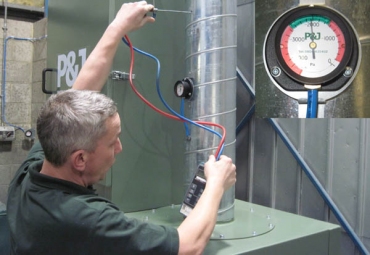If you find yourself in a position where you’ll soon be needing to go about the installation of fume extraction technology or some kind of industrial-scale ventilation system, chances are you’ll feel a little overwhelmed by the whole idea. After all, it’s not the kind of subject a business owner of any kind can be expected to understand inside out, so it’s difficult to know where to start or how to make sure you make the right decisions. Suffice to say, the importance of providing clean and safe air in the workplace doesn’t really need to be explained in great detail, though in its own right adds a great deal of pressure to those responsible for organising the installation of the necessary equipment.
Of course, the very best advice of all is to team up with a professional LEV or extraction technology specialist for a little impartial advice on how to progress. There are so many providers on the market right now who in most cases are able to offer consultations for free, but at the same time it’s important to have a good grasp of what it is you need before reaching out for help. Not that you’ll be expected to come up with the blueprints for the proposed installation or even provide a great deal of technical information, but the information that you do share with the provider will have a marked impact on the approach they take and the resulting system that’s ultimately installed.
The best course of action to take is one of simple evaluation, which includes the creation of something of a checklist covering a few of the most important points. There will be much to do when the time comes to vet the providers on offer, but prior to this you should be thinking about what it is you need in specific.
The Needs of Your Business
For example, there are literally infinite specifications and types of extraction and filtration systems on the market right now though at the same time there’s no such thing as a one-size-fits-all solution. If you’re working in a setting where toxic chemicals are producing the kinds of deadly fumes that need to be extracted on a 24/7 basis for example, you’ll be looking at a wholly different system than if you were working with a wood-cutter that produces a moderate amount of dust on a bi-daily basis. This is the very first consideration you need to make as chances are that when making contact with the providers on offer, the first thing you’ll be asked about is the kind of extraction you need. Of course you can always arrange for on-site consultations if unsure, but it’s much faster and more efficient to have a good grasp ahead of time.
Workplace Specifics
Along with the type of extraction and ventilation system your business needs, you’ll also need to factor in the specifics of your workplace by way of its size, working hours and general output. In this instance, if you are operating a gigantic factory floor that only has a workforce of around 12 workers on a part-time basis, you’ll need a wholly different system to a business where 100 people are crammed into a tiny room full of toxic substances on a 24/7 basis. From the size of the place to how many workers to the time they spend there and right through to existing ventilation, the more you have to offer your prospective installation provider by way of information, the smoother the whole process will run.
If you can provide full and accurate data with regard to the dimensions and specifics of the building itself, this will also prove invaluable in the evaluation and planning stages.
Space Restrictions
Somewhere along the line, the decision will be made as to whether the necessary equipment will be housed either internally or externally. More often than not, this will be determined by way of how much space there is available in the building itself and whether or not it would be plausible to choose either approach over the other. In terms of performance, there’s generally no difference between internal and external systems, though prices can vary in accordance with specifics.
As mentioned previously, if in any doubt as to the kind of information you should be gathering or what kinds of options are on the table, get in touch with the professionals and organise a free, no-obligation consultation.

